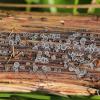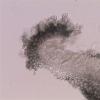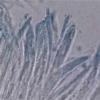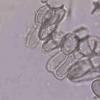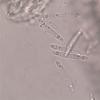
03-02-2026 20:44
Zetti MarioWhen I first saw this white mould on an Agaricus s

18-08-2025 15:07
 Lothar Krieglsteiner
Lothar Krieglsteiner
.. 20.7.25, in subarctic habital. The liverwort i

02-02-2026 21:46
Margot en Geert VullingsOn a barkless poplar branch, we found hairy discs

02-02-2026 14:55
 Andgelo Mombert
Andgelo Mombert
Bonjour,Sur thalle de Lobaria pulmonaria.Conidiome

02-02-2026 14:33
 Andgelo Mombert
Andgelo Mombert
Bonjour,Sur le thalle de Peltigera praetextata, ne

31-01-2026 10:22
 Michel Hairaud
Michel Hairaud
Bonjour, Cette hypocreale parasite en nombre les

02-02-2026 09:29
 Bernard CLESSE
Bernard CLESSE
Bonjour à toutes et tous,Pour cette récolte de 2

01-02-2026 19:29
 Nicolas Suberbielle
Nicolas Suberbielle
Bonjour, Marie-Rose D'Angelo (Société Mycologiq

31-01-2026 09:17
 Marc Detollenaere
Marc Detollenaere
Dear Forum,On decorticated wood of Castanea,I foun
asco on Angelica sylvestris
Franz Berger,
27-05-2020 20:00
 Dear ascofreaks!
Dear ascofreaks! I cant even find a correct genus:
Apo 0,7 mm, On base of old dead stem of Angelica sylvestris in a bog. Foto in moist state, dry the hairy white rim distinctly more prominent and the black disc (when dry!) sunken and due of the retraction more of the hairy dark grey exciple visible.
epihymenium grainy black, grains soluble in KOH, hymenium 60 µm, hyalin insperse, exciple paraplect., outside covered with short club shaped "hairs".
asci cylindrical, 60x 5-6 µm, unitunicate, 8 spores biseriate, tip J neg., spores hyaline, aseptate, straight to slightly bent, 17-19x3 µm, obtuse, with small oil droplets only in both tips.
Hans-Otto Baral,
27-05-2020 20:07

Re : asco on Angelica sylvestris
Dear Franz
this is not easy without microphotos. Did you see the paraphyses? Do they contain refractive contents? From this it depends whether it is a Mollisia or Pyrenopeziza.
When already dried, this will not be as easy as in the fresh state.
The spores are rather large, so it is not the common P. atrata.
Zotto
Franz Berger,
27-05-2020 20:27

Re : asco on Angelica sylvestris
AHA, not the paraphyses are inspers, but the overlaying asci in not perfect hand-cut section with their ascospores are containing the refractive droplets.
Hans-Otto Baral,
27-05-2020 21:06

Re : asco on Angelica sylvestris
Hmm, I cannot imagine what you saw :-( You do not have the possibility for microphotos?
Franz Berger,
28-05-2020 09:22
Hans-Otto Baral,
28-05-2020 10:01

Re : asco on Angelica sylvestris
This is now very helpful. The greybrown excipulum of angular cells clearly points to a Pyrenopeziza, also the long-conical ascus apices. Paraphyses are well visible on your 2nd pic but they are dead - impossible anymore to see the relevant contents.
Interesting species, not easy to ideintify. Species on dicot stems exist a lot, many are host specific, others not. You can look in my subfolder "Pyrenopeziza on herbaceous dicots" in folder Ploettnerulaceae of Helotiales. I should insert more spore sizes to the folder names to a more rapid search. P. carduorum is a species with similar spores but perhaps only on Asteraceae.
Franz Berger,
28-05-2020 10:10

Re : asco on Angelica sylvestris
Thank You very much for Your help!

